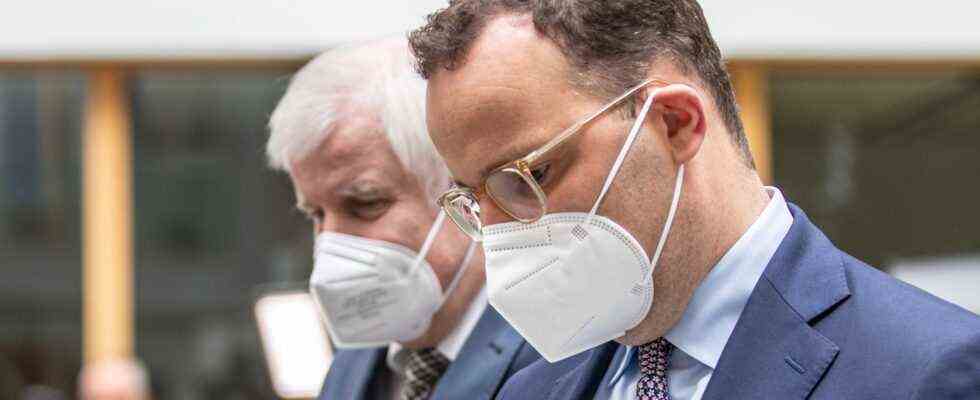Status: 07/21/2021 4:13 p.m.
Pandemics, floods, aid for friendly countries – in the event of an emergency, Germany should be better equipped with medical protective equipment in the future. The reserve is part of a new civil protection strategy.
Missing masks, inadequate protective equipment, not enough disinfectants for doctors and nursing staff: Federal Minister of Health Jens Spahn recalled the situation last year when cent items had become expensive products and, according to Spahn, a wild west situation prevailed on the world market .
Important products were in short supply and had to be procured quickly. “That succeeded, but it was a feat. And it was also expensive. To buy in an emergency is always more expensive,” said Spahn.
You don’t want to get into such a situation again. Rather, as Spahn puts it, it is important to learn from the pandemic in the pandemic. And that means being better prepared for possible crises.
Six month supply
The National Reserve for Health Protection is now intended to ensure that appropriate stocks are available for the health sector in the future. They are supposed to cover the need for six months, explains the minister.
“We will initially equip the reserve from stocks that we have – with masks, gloves, protective suits, disinfectants and ventilators,” said Spahn. “The reserve should then gradually go into continuous operation.”
The health protection reserve is to be used in the event of a pandemic. It should also be able to be used in flood disasters, as is currently the case in western Germany, as well as in the event that Germany has to stand by its allies. It should also be possible to deliver protective equipment abroad if, for example, supply chains are interrupted.
National competence center planned
The establishment of the National Reserve Health Protection is part of a new strategy for civil protection. Federal Interior Minister Horst Seehofer announced closer cooperation between the federal and state governments.
Specifically, the Federal Office for Civil Protection and Disaster Assistance – BBK for short – is to be expanded into a national competence center. The federal states are currently responsible for disaster control. So far, however, the BBK has only been allowed to act in the event of a defense.
“Now we have learned in the pandemic that it is difficult to understand that an authority has considerable resources like the BBK, but according to the constitutional and legal situation, they are not allowed to use them in the event of peace,” said Seehofer.
In future, danger warning via smartphone
That too should change now. All 16 federal states, according to Seehofer, have agreed to the new distribution of competencies, according to which the BBK retains its tasks, but can support the states more.
“This realignment, including what Jens Spahn said, is a real change in policy,” said Seehofer. “Because competence center means that it is not a federal committee in the BBK that decides on health or other preventive measures, but rather the federal states and aid organizations sit at the table.”
Seehofer also promised that the population should be warned by smartphone in the future in the event of floods and other dangers. With so-called cell broadcasting, a message is sent to cell phone users similar to an SMS. To warn of dangers, according to Seehofer, a mix of digital and analog methods, such as sirens, is necessary.
Spahn and Seehofer present National Reserve Health Protection
Claudia Plaß, ARD Berlin, July 21, 2021 3:05 p.m.

